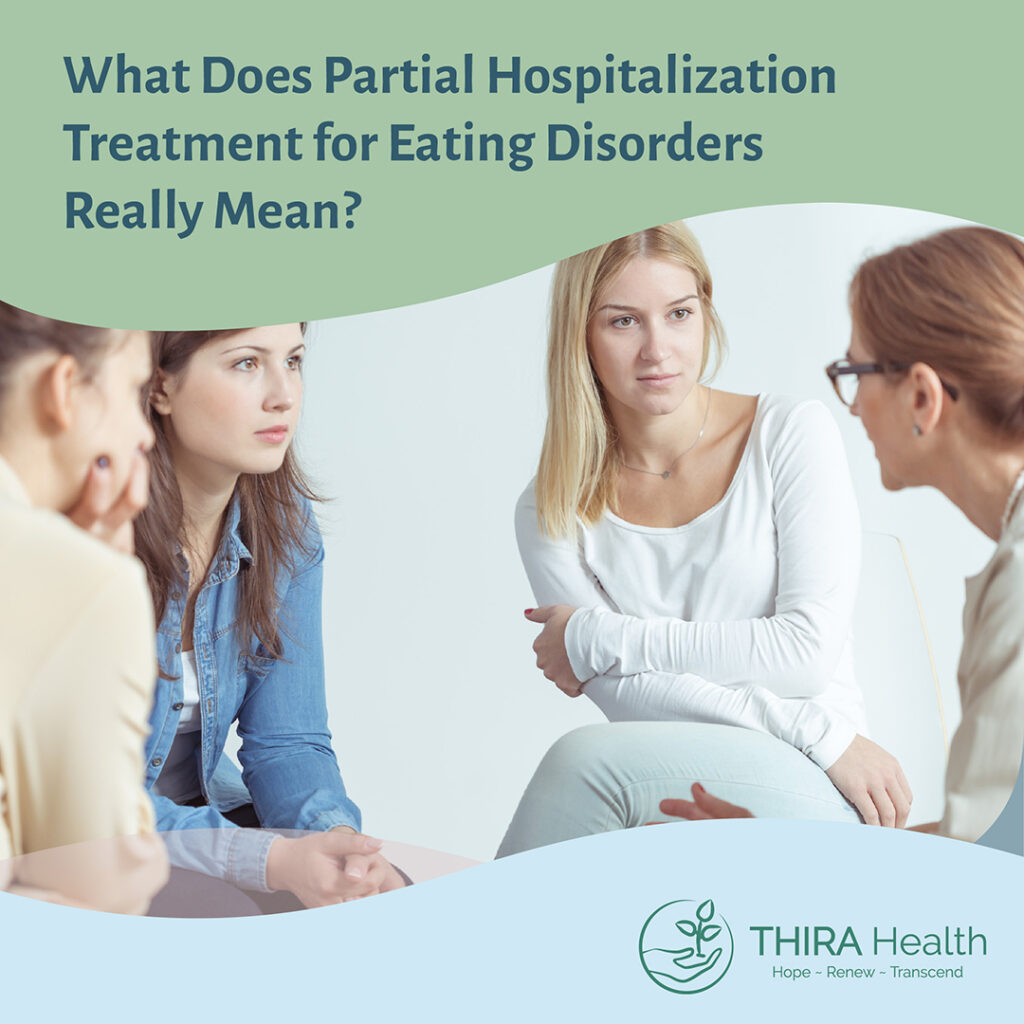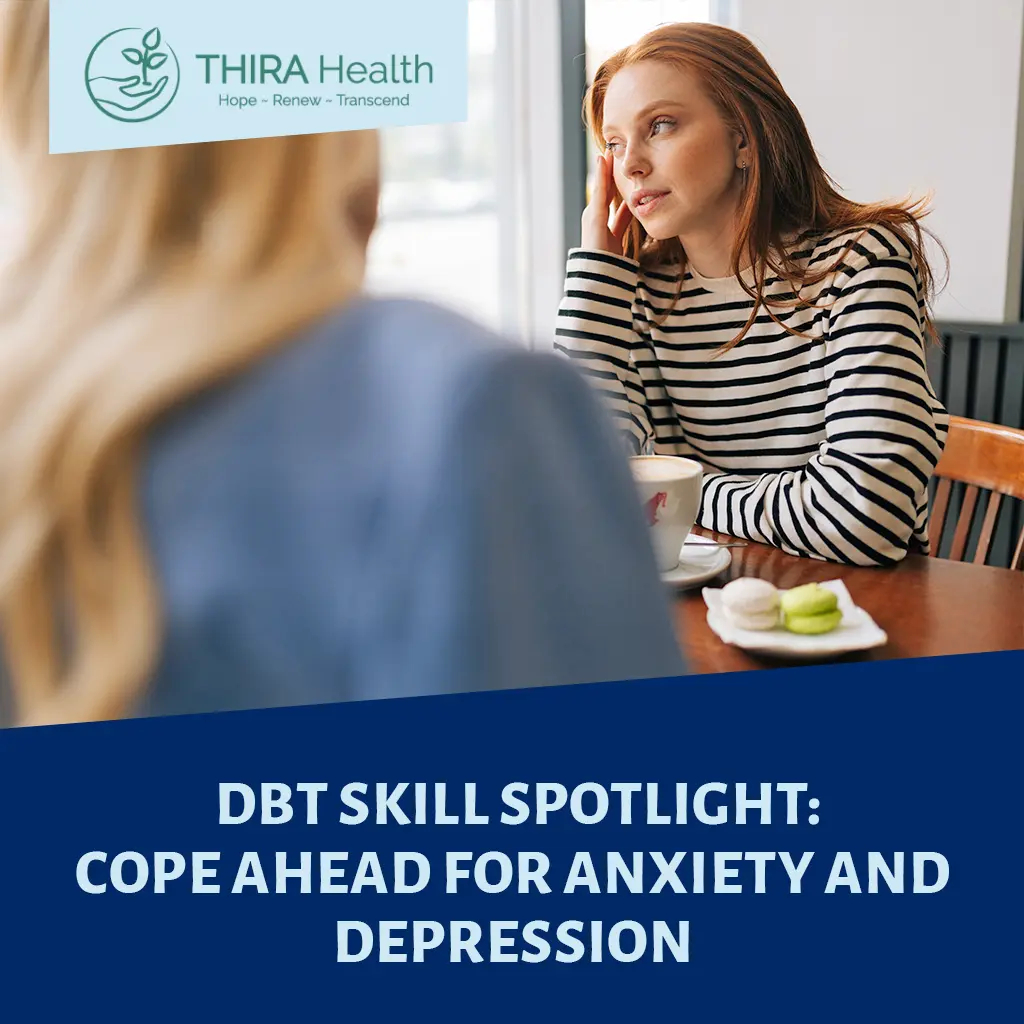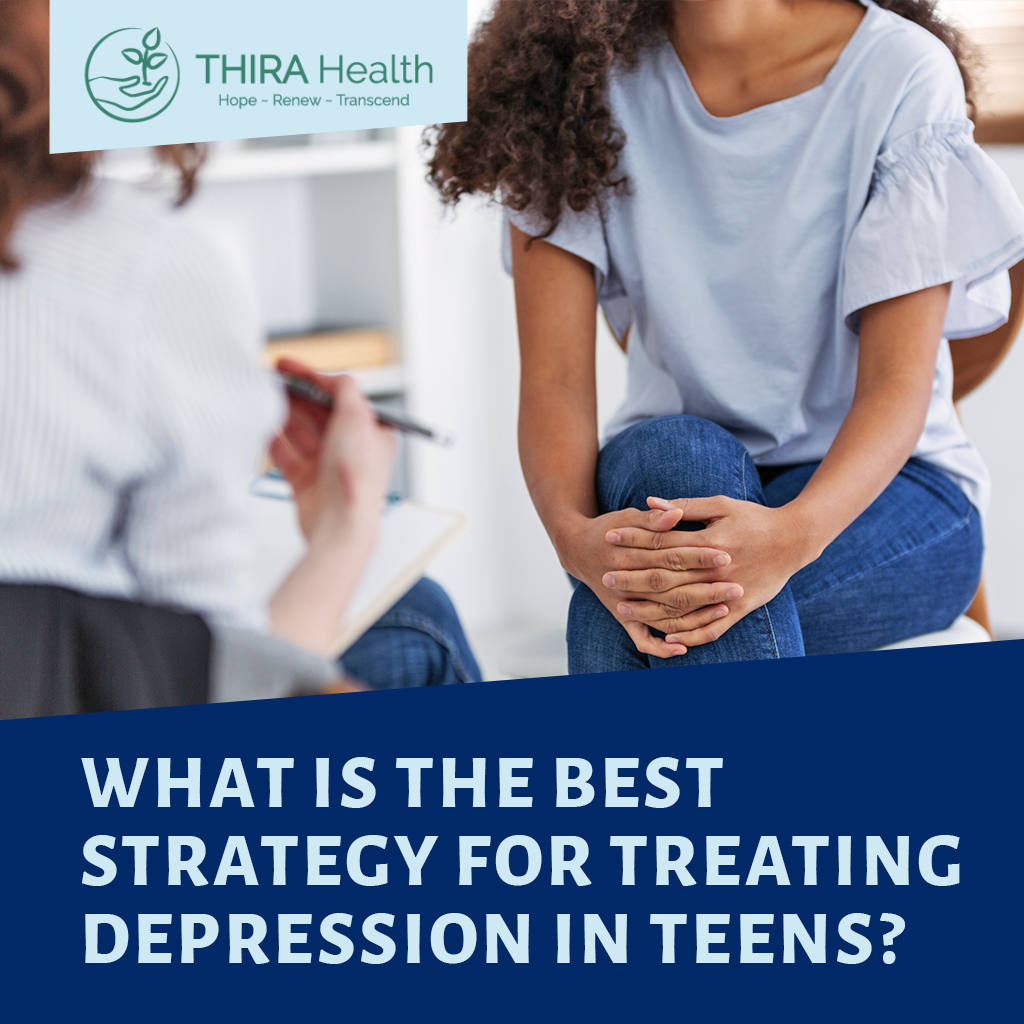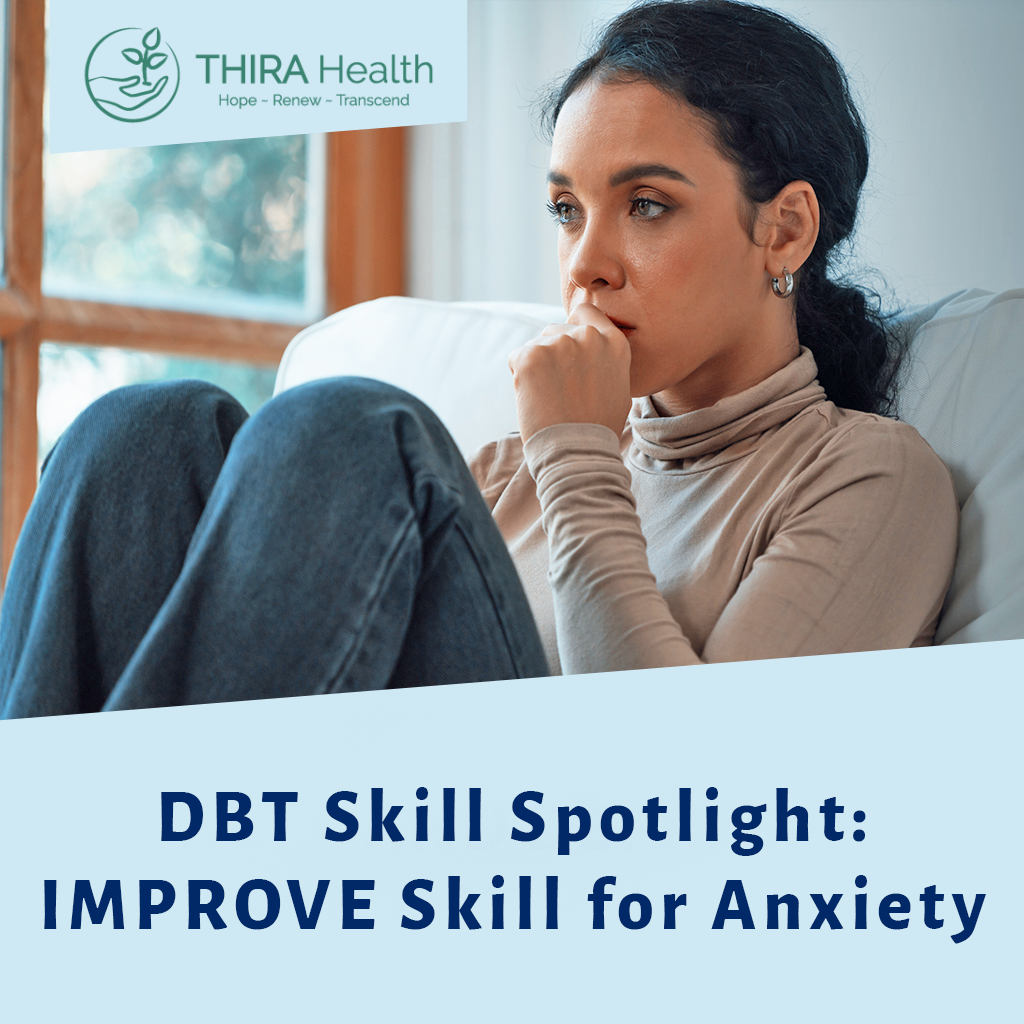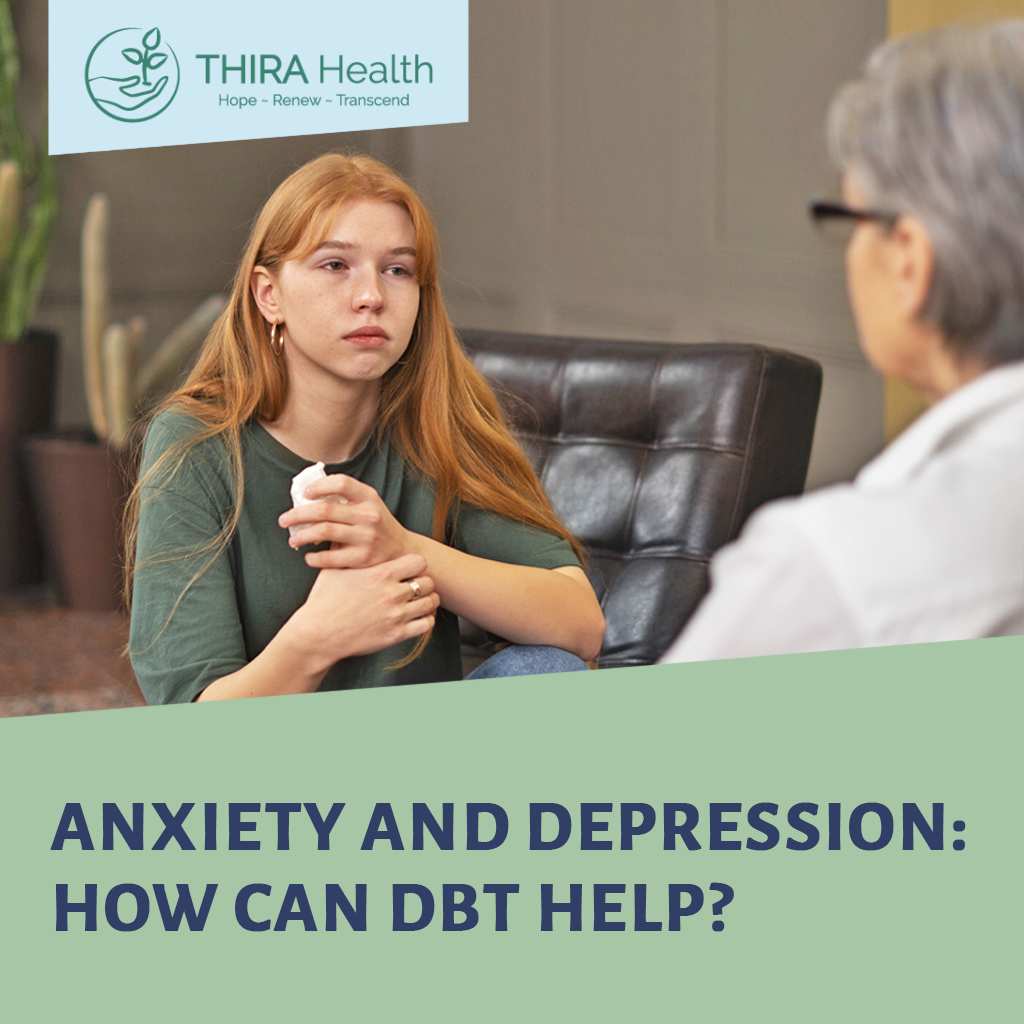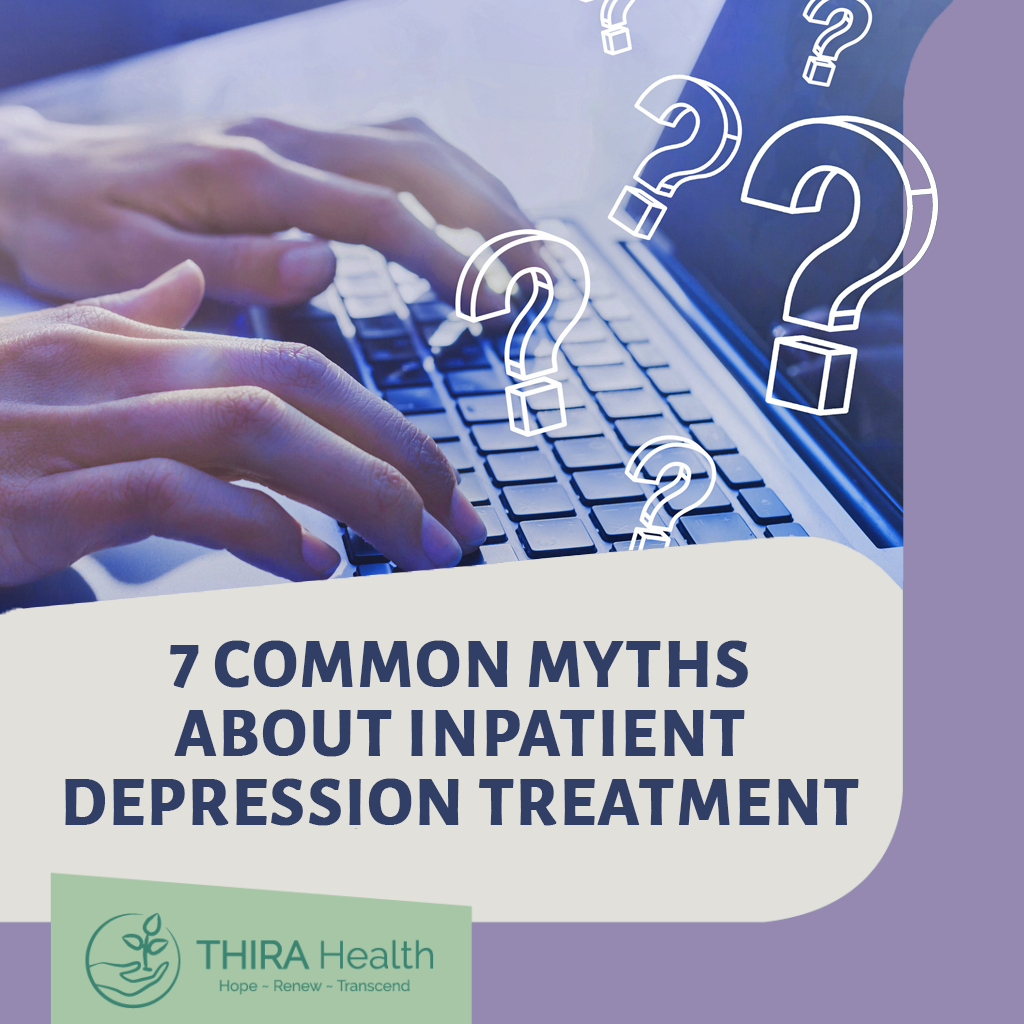Treatment for mental health disorders—specifically eating disorders—is not a “one size fits all” type of situation. It can feel intimidating and overwhelming trying to figure out what treatment is best for you, what the schedules look like, what the differences are, and what IOP or PHP means. If you feel lost trying to decipher what type of eating disorder treatment is right for you, you’re in the right place.
This is your quick guide on partial hospitalization programming (PHP) and what you can expect to learn and benefit from this kind of treatment. Partial hospitalization programming is becoming an increasingly popular treatment for eating disorders as research on efficacy and remission continues to develop in a positive direction. For more information, keep reading or click to learn how THIRA Health’s approach to partial hospitalization treatment for eating disorders with influences from the HAES movement (Health At Every Size) can help you.

What is Partial Hospitalization Treatment?
For individuals that are medically and behaviorally stable and do not need to be hospitalized but need intense supervision, treatment, and structure, PHP is often an effective choice. Partial hospitalization treatment is often the natural step down from inpatient level of care and is a good fit for individuals looking for a binge eating therapist nearby.
On average, patients in PHP for ED receive 6-10 hours daily of group therapy, individual therapy, nutrition education, and supervised meals. Depending on the practice, this may include evidence-based interventions such as Cognitive Behavioral Therapy (CBT), Dialectical Behavior Therapy (DBT), art therapy, medication management, and family therapy.
Since a majority of the day is spent in treatment with medical professionals and other ED patients, this intensive programming allows for a deep sense of community and support. For people in eating disorder recovery, routine and structure are crucial for rehabilitation and supervision to ensure these skills are effectively utilized and practiced and become a regular part of the patient’s daily life.
Those successful in PHP may be referred to transition to intensive outpatient programming (IOP), which is a similar model with a lower level of care. IOP also focuses on group and evidence-based interventions, but typically is around 3 hours a day, 3-4 days a week. Many programs that offer a PHP level of care will also offer IOP services as well.
PHP at THIRA Health
At THIRA Health, our PHP program runs seven days a week with extensive hours each day (Monday – Thursday, 8:30am to 5:30pm, Friday, 8:30am – 4:30pm). This offers patients ample opportunities to learn the DBT skills that will support their recovery and connect with professionals and others in the program in a safe, understanding community.

THIRA approaches ED recovery through a holistic lens that centers on whole-person care that relies on the expertise of both therapists and nutritionists. Our clinical team uses Dialectical Behavior Therapy (DBT) to teach patients emotional regulation, distress tolerance, interpersonal effectiveness, and mindfulness DBT skills to support all facets and symptoms of mental health and eating disorders, including commonly co-occurring disorders like anxiety and depression. Complementing that skills training, our nutritionists also work with clients to target their relationship with food and their bodies. Our program is aligned with the ideals of Intuitive Eating, that “all foods fit,” and the Health at Every Size (HAES) principles.
Another holistic component of PHP at THIRA is the emphasis on mind/body balance. Other than DBT groups, THIRA offers art therapy, nutritious meals, and relational support in the community setting. THIRA’s unique programming also offers family education and support, nutritional guidance, and medication management to provide ongoing treatment targeting physical, emotional, and mental health.
THIRA’s partial hospitalization program is most suited for teenage girls, women, and non-conforming individuals who face challenges managing their eating disorders to a point that significantly impacts them living their daily lives in a healthy and fulfilling way. This programming allows for intensive skill education, acquisition, and empowerment in a community and individualized setting. Treatment typically lasts 6-8 weeks based on individual needs and the specific eating disorder you may be dealing with. During this time, you will be supported by staff and peers alike as you begin your recovery journey.
Is PHP the Right Choice for Me?
You know yourself better than anyone. And though a medical professional can help guide you in your treatment decision-making or search for a “binge eating disorder therapist near me”, it is important to know your options and be able to advocate for your needs.
Research shows that PHP boasts many advantages when it comes to efficacy and remission rates of eating disorders. Being able to go home at the end of treatment each day allows clients to generalize these skills and practice applying them independently in their daily lives. This allows clients to problem-solve and troubleshoot with their providers on a daily basis while practicing independence. PHP also tends to be more favorable to insurance coverage because it is less intense than inpatient treatment. If you have any questions or want to speak with someone to see if THIRA’s PHP treatment is the right fit for you, reach out here for support and guidance.

